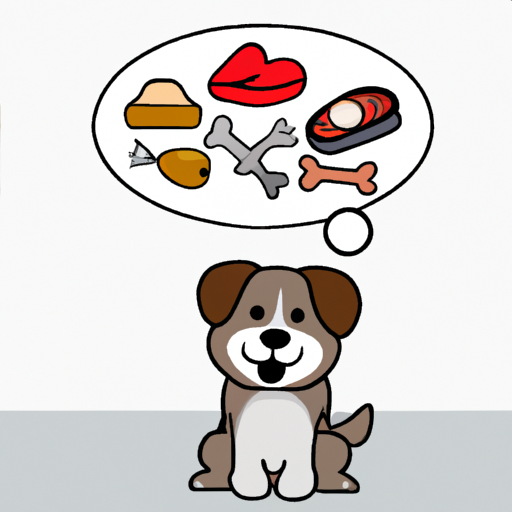As a caregiver to your furry friend, it’s crucial to understand their dietary preferences and needs. Let’s delve into the world of canine cuisine!
1. Understanding Canine Nutrition
Just like in humans, nutrition plays a vital role in a dog’s overall health and wellbeing. Your dog’s diet should be balanced, with an appropriate mix of proteins, fats, carbohydrates, vitamins, and minerals.
- Proteins are essential for tissue repair and muscle development.
- Fats provide energy and help absorption of certain vitamins.
- Carbohydrates provide a source of quick energy and aid in gut health.
- Vitamins and minerals are necessary for various bodily functions.
2. Canine Culinary Preferences
Dogs are typically not fussy eaters, but they do have some favorite foods. Here are some common favorites:
- Meat: Dogs love meat – it’s a rich source of protein and adds flavor to their food.
- Fish: Certain types of fish, like salmon or white fish, are a hit with many dogs.
- Fruits and Vegetables: Some dogs enjoy fruits and vegetables, like carrots, peas, apples, or bananas.
- Dairy Products: Yogurt or cheese can be a tasty treat, but remember, some dogs are lactose intolerant.
3. Foods to Avoid
Despite their willingness to eat almost anything, certain foods are harmful to dogs. Here’s a brief chart for your reference:
| Foods to Avoid | Reason |
|---|---|
| Chocolate | Contains theobromine, which is toxic to dogs |
| Grapes and Raisins | Can cause kidney failure |
| Onions and Garlic | Can cause gastrointestinal upset and damage red blood cells |
| Alcohol | Can cause vomiting, diarrhea, and in severe cases, coma or death |
| Xylitol | Can lead to liver failure |
4. Tailoring Meals to Your Dog’s Needs
Remember, each dog is different. Factors like age, breed, weight, and health status influence a dog’s dietary needs. Consult with your vet to create a personalized meal plan for your furry friend.
5. DIY Dog Treats
Making homemade meals or treats can be a great way to bond with your dog. Just ensure to use dog-safe ingredients and keep their nutritional needs in mind.
Frequently Asked Questions
Q1: Can dogs eat human food?
A: Yes, but not all human food is safe for dogs. Always check if a food is dog-safe before feeding it to your pet.
Q2: How often should I feed my dog?
A: Typically, adult dogs should be fed twice a day, while puppies need to eat three to four times a day.
Q3: Can I give my dog supplements?
A: Yes, but consult with your vet before starting any supplements.
Dive into this fascinating world of canine cuisine armed with this knowledge, and you’ll be sure to keep your dog happy, healthy, and satisfied!



